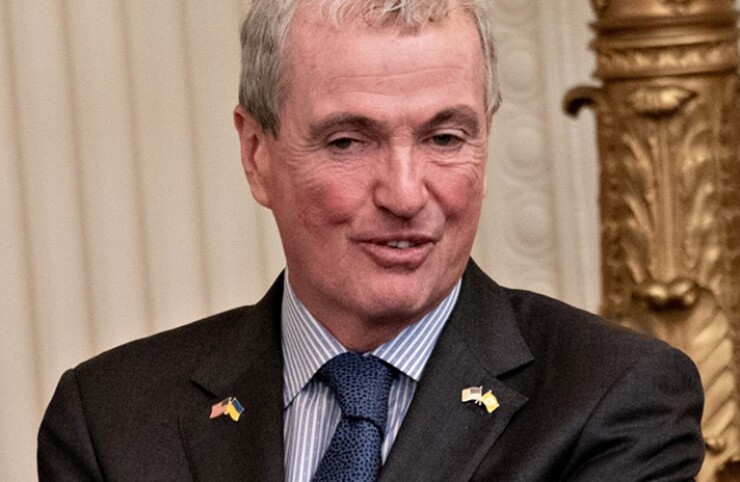New Jersey's Transportation Trust Fund has been fully funded for another five years under legislation signed by Gov. Phil Murphy on Tuesday.
The move provides billions of dollars to modernize and maintain the state's transportation infrastructure. The law also provides additional capital funding to NJ TRANSIT to support local and county projects.
"New Jersey sits at the heart of one of the busiest stretches of commerce in the entire world," Murphy said, adding the law will enable the state "to rebuild and maintain our entire transportation system, while creating thousands of good-paying jobs in the years to come and easing the burden of property taxes by offsetting these costs for local governments."

According to the governor's office, the law will:
- Establish a five-year program, starting July 1 and ending June 30, 2029, to ensure a steady stream of revenue to support statewide transportation projects. The law annually adjusts the petroleum products gross receipts tax rate by updating the statutorily prescribed revenue target, commonly referred to as the "highway fuel cap," which is currently based on 2016 highway fuel tax collections;
- Authorize about $10.37 billion in appropriations for the state's annual transportation capital program from fiscal 2025 through fiscal 2029. Of that amount, about $2.3 billion will be passed on as state aid to counties and municipalities for transportation projects;
- Provide up to $8.84 billion in bonding authority to the Transportation Trust Fund Authority (TTFA) over the five-year period, or around $1.76 billion annually;
- Provide about $1.5 billion in pay-as-you-go funding for transportation projects.
- Increase the $2 billion maximum annual capital program amount by 3% per year in years three, four, and five of the reauthorization, which coincides with the end of the federal Bipartisan Infrastructure Law funding. This incremental revenue growth will be split evenly among NJ DOT, NJ TRANSIT, county governments, and municipal governments, providing greater investment at the county and local level and relieving the pressure on local property taxpayers to fund infrastructure investments.
- Bolster NJ TRANSIT by providing an additional $91.75 million over the last three years of the program to augment the $767 million the agency currently receives annually from the TTF to fund capital projects. By year five, NJ TRANSIT will receive over $813 million annually for capital projects.
- Establish an annual electric vehicle fee of $250 with increases of $10 per year in each of the remaining four years; and
- Delay the annual tax rate adjustment for sales of gasoline and diesel motor fuel by three months, from Oct. 1 to Jan. 1, so that any rate changes will coincide with the start of the new year.
"The reauthorization of the New Jersey Transportation Trust Fund is foundational to the continued investment in our transportation infrastructure," said Diane Gutierrez-Scaccetti, the governor's chief of staff and former NJDOT commissioner. "Transportation keeps our communities moving and our economy strong."
NJDOT Acting Commissioner Fran O'Connor said the TTF was vital to maintaining and improving the state's transportation infrastructure.
"In addition to funding projects on interstate and state highways, TTF funding profoundly impacts our local communities at the county and municipal levels," O'Connor said. "This bill increases funding for NJDOT's local aid programs so even more critical infrastructure projects can get done at the local level."
In November, Moody's Ratings assigned an A2 rating to the TTFA's $1.25 billion of Series 2023BB transportation program bonds. Moody's maintains A2 ratings on the authority's $15.2 billion of similarly secured bonds. The outlook is stable.
S&P Global Ratings assigned an A-minus rating with stable outlook to the Series 2023BB bonds while Fitch Ratings and Kroll Bond Rating Agency rated the bonds A with a stable outlook.





